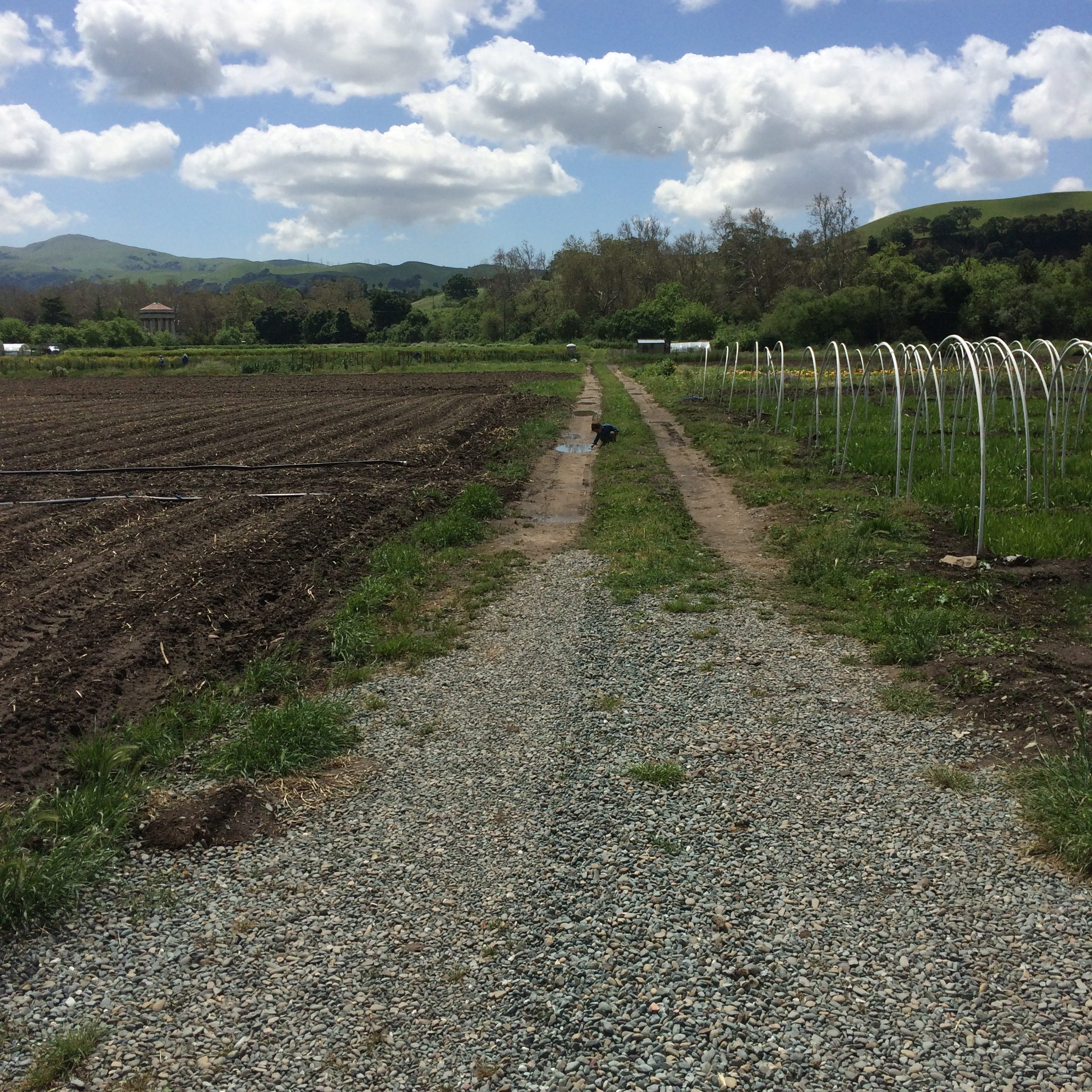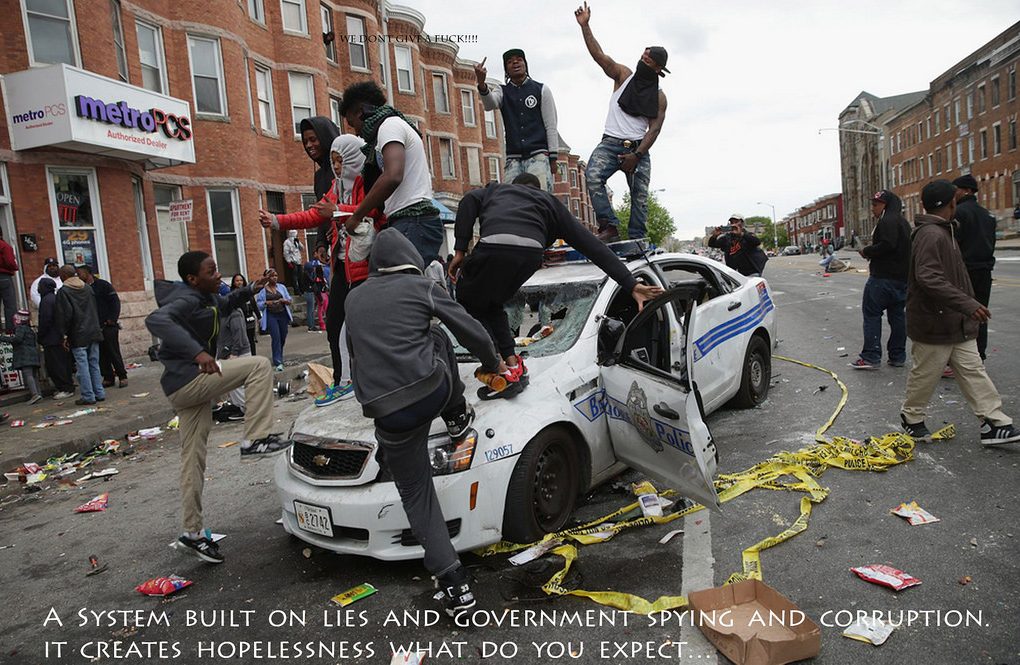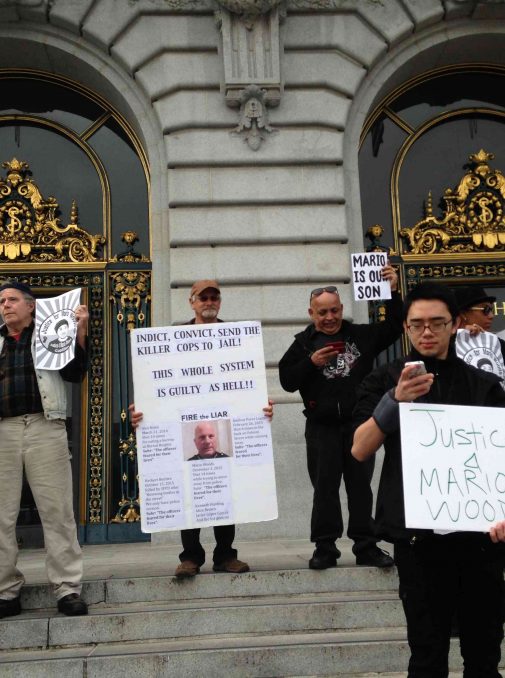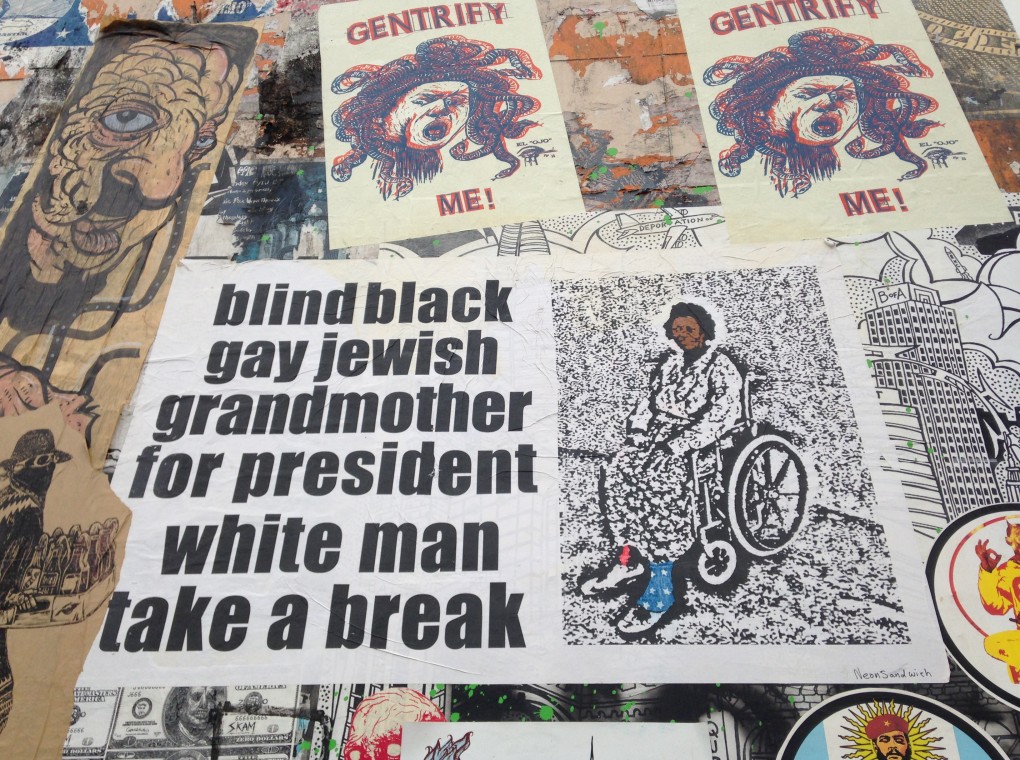Do we really need “every tool in the toolbox”? [1]
I most recently encountered the argument that we need “every tool in the toolbox” in a debate that emerged from the screening of the film “Food Evolution” at UC Berkeley. This debate was sparked by a critique sent around on various email lists, outlining how the film presents a biased case in favor of the use of Genetic Engineering (GE) technologies in agriculture while claiming falsely to have put aside bias in favor of “the science”. Important to note is that the authors of the emailed critique – students, professors and other food systems scholars (including yours truly) – were not necessarily arguing against GE per se or in all cases.
As might be predicted, UC Berkeley students involved in science with biotechnological applications – who probably felt personally attacked or implicated in the critique – complained and pushed back against the letter. One of them made the argument that we shouldn’t dismiss the use of GE in creating more sustainable agriculture, because we need “every tool in the toolbox”.
But is this an apt metaphor? Does it make sense to see agriculture as utilizing a toolbox of techniques and technologies, in which GE is just one tool that can be brought out of the box and used (and be put back in), as we wish to use it, and irrespective of the rest of the tools? I mean – a toolbox has a hammer, a screwdriver, and a wrench, each appropriate for distinct tasks. Which one is GE? Does agriculture have an equivalent set of independent, alternatingly useful tools? More fundamentally, should we imagine the management of living landscapes to grow food, fiber, or fuel as similar to, say, fixing a car or building a house?
Agricultural technologies such as seeds, soil amendments, machinery, or chemicals do not operate as independent or unrelated factors of production. And only rarely are the problems a farmer faces (say, an outbreak of pests or a steep drop in crop prices) soluble through the simple application of a new product or policy.
How then should we imagine “tools” and our “toolbox”?
Agricultural techniques and technologies emerge and operate within a complex system of cultural, economic, political and ecological forces. These forces both shape and are shaped by the technologies themselves, and their use. Important and left out in ‘toolbox’ conceptions of ‘solving’ humanity’s agricultural issues is that the ‘tools’ are so interconnected that their use is strongly co-determined – by the total set of tools in the toolbox, and the conditions surrounding their use.
Simply put, ‘tool’ is a horrible metaphor through which to analyze the use of GE seed/crop technologies.
In this post, I’ll use examples of GE, the construction of housing in areas facing gentrification, and Barack Obama’s “all of the above” energy policy to show how the “tools in the toolbox” argument ignores the important enmeshed nature of the “tools” under debate, and is an inadequate and inappropriate metaphor at best, and a purposefully deceitful one at worst.
Genetic engineering: the baby and the bathwater.
GE is in a substantial and dominant way a product of the rise of industrial capitalized agriculture. GE seeds became a huge part of the corn, soy, wheat, and factory farmed animal product markets because the technology’s benefits fit well within a system of agriculture that already structurally demanded that farmers “get big or get out”. Getting big entails mechanization and use of agrochemicals in order to reap ever-larger harvests. What the early successful GE technology primarily did was enable seeds to produce plants that could withstand certain agrochemicals, while the unwanted plants that invariably emerged (i.e. weeds) would be killed. These GE seed and herbicide “packages” are by far the largest use of GE technology in agriculture.
Clearly to a farmer who was already part of these grain/commodity circuits, these packages appeared as a more reliable form of weed control. But such GE didn’t solve the issues of chronic overproduction and low prices; or harms from chemical herbicides and pesticides; or pollution related to the scale, concentration and dispersal of volatile fertilizers and manures (all already associated, pre-GE, with production of these few commodities named above). In fact, GE didn’t even really increase yields, even though that was one of the main claims made in its favor. GE simply enabled the continued accumulation of capital by input and output industries in agriculture – pesticide salesmen and grain buyers mainly – while offering farmers something that had short-term appeal given the market and political circumstances.
Many other attempts to apply GE to food production have failed. Drought tolerant varieties are largely not. The very first GE approved for human consumption, the “FlavrSavr” tomato, did not succeed commercially. The practically mythological “Golden Rice” (engineered to contain extra vitamin A) has yet to reach farmers or consumers after 25 years in development—largely because they don’t yield as well as existing varieties. And so on.
Meanwhile, the GE that has been successfully developed and deployed fits right into a corporate capitalist industrial agri-food system, and reinforces it. GE science gets much more research funding than agroecology does, in both public and private sectors. What incentive is there for private profit-seeking actors to invest in agroecological research, when agroecology is largely dedicated to reducing rather than increasing a farmer’s need for bought inputs? As it stands, GE as a complex assemblage of science, industry, policies and values is deeply tied to systems of ecologically and socially harmful agriculture. It also contributes to ongoing inequalities in the ownership of productive resources and the benefits of their use.
This isn’t to say that GE couldn’t be applied well somehow. [2]
It is to say that intervening economic, social, cultural, and political forces are important factors in whether GE is a ‘tool’ that is worth considering, and that living ecological systems do not simply abide lab-based GE dreams.
If we want to solve only the weed problems of grain commodity growing, maybe GE is useful (although extensive use of GE seed/packages has also led to “superweeds” that are resistant to agrochemicals). But if we are shooting for socially just, environmentally regenerative and economically equitable food systems it’s hard to see how GE would help accomplish this goal. As has been pointed out by the Union of Concerned Scientists and others, more traditional breeding methods already are a “proven technology” for improving crops.
Bringing up the ‘tool’ metaphor serves to distract from critiques of the overall system in which GE is embedded, instead drawing our attention to how GE could maybe be used in a different way. As such, it is a go-to strategy for GE proponents to counter critics, by claiming that they are dogmatically dismissing a valuable ‘tool’ in agricultural development. They claim we are essentially ‘throwing out the baby with the bathwater’ – but really we are simply pointing out that the bathwater is dirty, the baby was born from this dirty water, and until we clean the water, GE is not a good go-to tool for anything.
Urban housing and gentrification: YIMBYs, political will, and neoliberal argumentation
Everyone wants to solve gentrification, don’t they? These days, even those promoting the development of housing that is financially out of the reach of the vast majority of working people claim that they’re actually working in the poor’s interests. See, because of “supply and demand” – a concept easily understood even if applied with little nuance – the more housing that is built, the less “pressure” there is on the housing market, so logically the price of all housing will drop.
This is the “every tool” argument again, though the same exact words may not be used. It’s simple (to those arguing it): if you’re against any particular development of housing, you must be against any housing, and even worse – you’re the reason why people are getting displaced due to rising housing costs!
The “YIMBY”s (Yes In My BackYards) that I know well are called “SF BARF” (a bizarrely chosen acronym for San Francisco Bay Area Renters Federation). But they come in many forms, from ‘pragmatic realists’ to ‘urbanist think tanks’. SF BARF happens to take money from developers and take up a lot of airspace, so they might just be on the more icky end of the spectrum. But they all use the ‘every tool’ argument to bludgeon anti-gentrification activists who dare question high-end developments that benefit those who gentrify.
A softer version of the “every tool” argument is that in places like SF, where laws have mandated minimal set-asides of either units or fees from developers towards more affordable housing, we should embrace any new development because it helps us build a small but meaningful number of ‘affordable’ units. But ‘affordable’ in SF’s case is not really (an ‘affordable’ unit goes for someone making a ‘moderate’ income of between $80-$120K/year). It should be obvious, but gentrification cannot be attenuated by a continued 6 to 1 increase in the number of economic elites into a neighborhood, while that 1 non-elite is not even someone making a typical working class income.
Really, gentrification issues come down to questions of political will, both in terms of housing construction but importantly in other areas as well. Political will to impose truly useful affordable housing requirements on for-profit developers, whether higher percentages, or for units that are actually affordable. Political will to impose limitations on landlords in their use of evictions, intimidation, and other quasi-legal tactics to displace for profit. Political will to completely transform (or disband) police agencies that systematically target the poor for institutionalization (an important and often overlooked driver of displacement).
Using the “supply and demand” argument is a neoliberal fallback position in any debate involving governmental roles in capitalist markets. This position has been debunked time and again. But it seems reasonable to many in contemporary gentrification debates because of limited economic knowledge beyond imposed (neo)liberal ‘common sense’ that suit the interests of those in power.
These arguments are not just incorrect, they are effective modes of de-politicization, by distracting political discourse and action away from important questions about what policies are and are not in place, and why (in whose interests?); away from looking at displacement within a larger framework of institutional factors (from the prison industrial complex, government-sparked centers of technological innovation and capital accumulation like Silicon Valley, generalized and ascendant income and wealth inequality, among others which are all themselves racialized and gendered); and away from the ways in which some people are more to blame than others in gentrification’s processes.
Gentrification is not the fault of people calling for more justice-oriented housing policies, and the “all tools” people are cynical in trying to blame them.
US Energy Policy: Climate change and political centrism (i.e. ‘capitalist realism’)
Climate catastrophe is upon us. It’s been only additionally confirmed by Donald Trump’s aggressive fossil fuel agenda. While mainstream liberals find value in Obama-era regulations on parts of the fossil fuel industry (particularly coal) and his support of expanding renewable energy, the reality is that in the USA, when it comes to a fossil-fuel driven economy dedicated to growth no matter the costs, business as usual continued from before Obama and through his administration.
The 2010 BP Gulf spill is likely the best but certainly not the only emblem of this approach.
Justification for the continuation of fossil fuel extraction and combustion (not to mention the environmentally indefensible corn/ethanol policy) came through Obama’s classic rhetorical maneuvers: tell people you care about something, but do what you need to do to appease the powerful elite you’re actually dedicated to serving. This came for energy policy in the form of what Obama called his “all of the above” energy approach. “Sure, we must expand renewables” … “but we also must continue with what we have, whether fracking, oil pipelines from the Tar Sands, or deepwater drilling for oil in sensitive habitats”.
“All of the above” means keeping political structures intact, economic elites happy (particularly the fossil fuel sector), and economic growth going (as much is possible in the terminal economic contraction that no one wants to admit is happening).
In general, many people see these approaches to governing and legislating (again in a ‘common sense’ way) as the only “realistic” option. This “capitalist realism” thinking precludes there being any alternative worth thinking about, much less advancing, when it comes to energy policy (among other things).
Yet ultimately, the only thing that is ‘realistic’ in terms of seeking a future we can survive as a species is to contract the economy suddenly—to stop extracting and ramp down the burning of fossil fuels—to avoid climate catastrophe. Since that seems unlikely to happen, due to path dependent capitalism, it at least would be prudent to save valuable energy stores to deal with the now inevitable challenges to human survival when they come.
But these sorts of perspectives are left out in the “reasonable” discussion of a “using every tool in the toolbox” platform for energy.
Conclusions: the “master’s tools” include the toolbox metaphor
The tool/toolbox metaphor is a common argument detrimental to sophisticated thought and the generation of useful conclusions. Be suspicious when it is used, and notice how it is leveraged to avoid structural or radical critiques.
—-
[1] Thanks go to Maywa Montenegro for her particular suggestion of Obama’s energy policy as an example of ‘all the tools’ political argumentation, and for her general awesomeness.
[2] Though there are valid concerns that – put simply – genetic ecology is so complex that any claims of control or predictability are false. It is true that our understanding of interactions between genes, between genes and organism, between organism genes and environment is incomplete, and that so far GE applications have been challenged by many unintended effects.
Also, GE is not simply “a technology”. It is a suite of technologies representing different lab and field processes, each technology with different possibilities and constraints. For example CRISPR-Cas9 is a newer ‘gene editing’ technique that doesn’t utilize transgenic cellular invasion to accomplish its ‘engineering’ (like the older forms of GE). Engineering virus resistance into a papaya is different than engineering a corn plant to manufacture an insecticide internally. Engineering algae is different than engineering more complex organisms like mammals. A wise discussion of GE then would start by looking at the specific GE, intent and context, rather than seek to end the conversation by declaring falsely a “consensus” that GE is “safe”.
 I’ve been worried about (generalized) environmental destruction throughout my life, aside from anything related to parenting. For the most part, I’ve never fallen prey to hopelessness given the circumstances. I’ve taken seriously the
I’ve been worried about (generalized) environmental destruction throughout my life, aside from anything related to parenting. For the most part, I’ve never fallen prey to hopelessness given the circumstances. I’ve taken seriously the 


 It is my contention (and certainly there are
It is my contention (and certainly there are 
 So maybe it’s a mild 1st degree “bern”, but I’m definitely feeling it. Sometimes I even get excited about Bernie Sanders’ candidacy. Why?
So maybe it’s a mild 1st degree “bern”, but I’m definitely feeling it. Sometimes I even get excited about Bernie Sanders’ candidacy. Why?